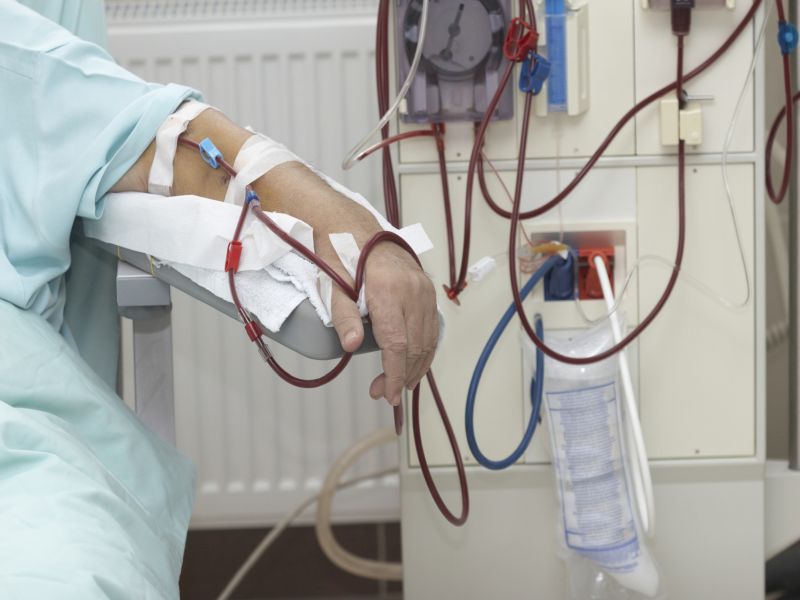
Older Americans on kidney dialysis have high rates of colonoscopy screening for colon cancer, but most get little benefit from the screening, a new study suggests.
Dialysis patients have high rates of death, so routine colon cancer screening doesn’t improve survival for most dialysis patients who don’t qualify for a kidney transplant.
Therefore, dialysis patients who have a limited life expectancy and no signs or symptoms of colon cancer shouldn’t undergo screening for the disease, according to the American Society of Nephrology.
“Physicians should carefully evaluate patients’ prognoses and consider the likelihood that they will truly benefit before ordering screening tests,” said study co-leader Dr. Christopher Carlos, from the University of California, San Francisco.
In this study, researchers reviewed data from more than 469,000 Medicare beneficiaries. They were all 50 and older. All had started receiving dialysis between 2007 and 2012.
Over an average follow-up of 1.5 years, almost 12 percent of those patients underwent colonoscopy screening.
The healthiest dialysis patients were 1.5 times more likely to be screened than the least healthy. Those more likely to receive a kidney transplant were 1.7 times more likely to be screened than those least likely to receive a kidney transplant, the study showed.
When compared to Medicare beneficiaries who weren’t on dialysis but had similarly limited life expectancies, the dialysis patients had an 8 times higher colonoscopy screening rate.
The study was published March 23 in the Journal of the American Society of Nephrology.
“While our findings suggest that the patients with the longest life expectancy and greatest chances of receiving a kidney transplant are the most likely to be screened, there remains a substantial amount of over-screening overall among patients on dialysis,” said study co-leader Dr. Kirsten Johansen, also from UCSF. Both team leaders spoke in a journal news release.
More information
The U.S. National Cancer Institute has more on colon cancer screening.
Source: HealthDay

Leave a Reply